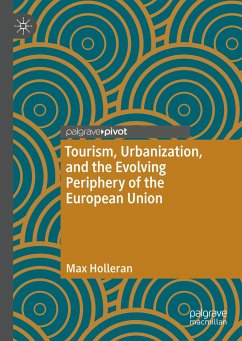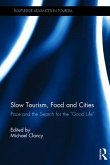This book explores travel, tourism, and urban development at the edges of Europe from the 1970s until the present. It compares tourism-spurred urban growth in Spain and Bulgaria, showing how development in Southern Europe after the fall of dictatorships provided a model for integrating post-socialist Europe in the 1990s. It analyzes the economic, cultural, and political dimensions of tourist economies, showing how they aligned with major European Union integration goals and were supported with EU development funds. It also chronicles the social and environmental costs of mass tourism where over-development has despoiled beachfronts and promoted low paying service jobs, reinforcing regional divisions in Europe between those who host and those who visit. Ultimately, it argues that while mass tourism is touted as a viable economic solution to EU inequality, it can potentially exacerbate disparities between core and peripheral zones, creating new and troubling forms of regional polarization.








